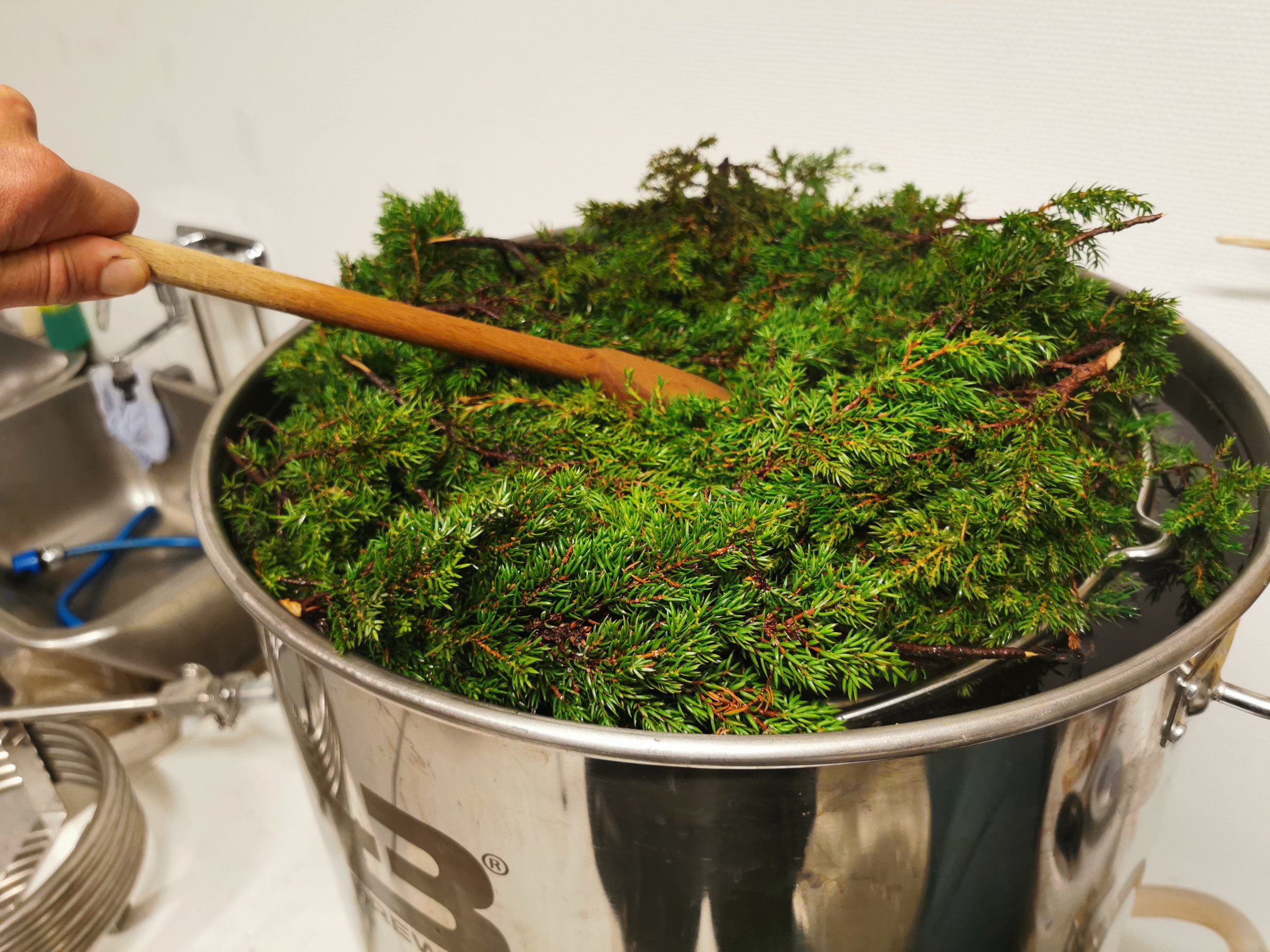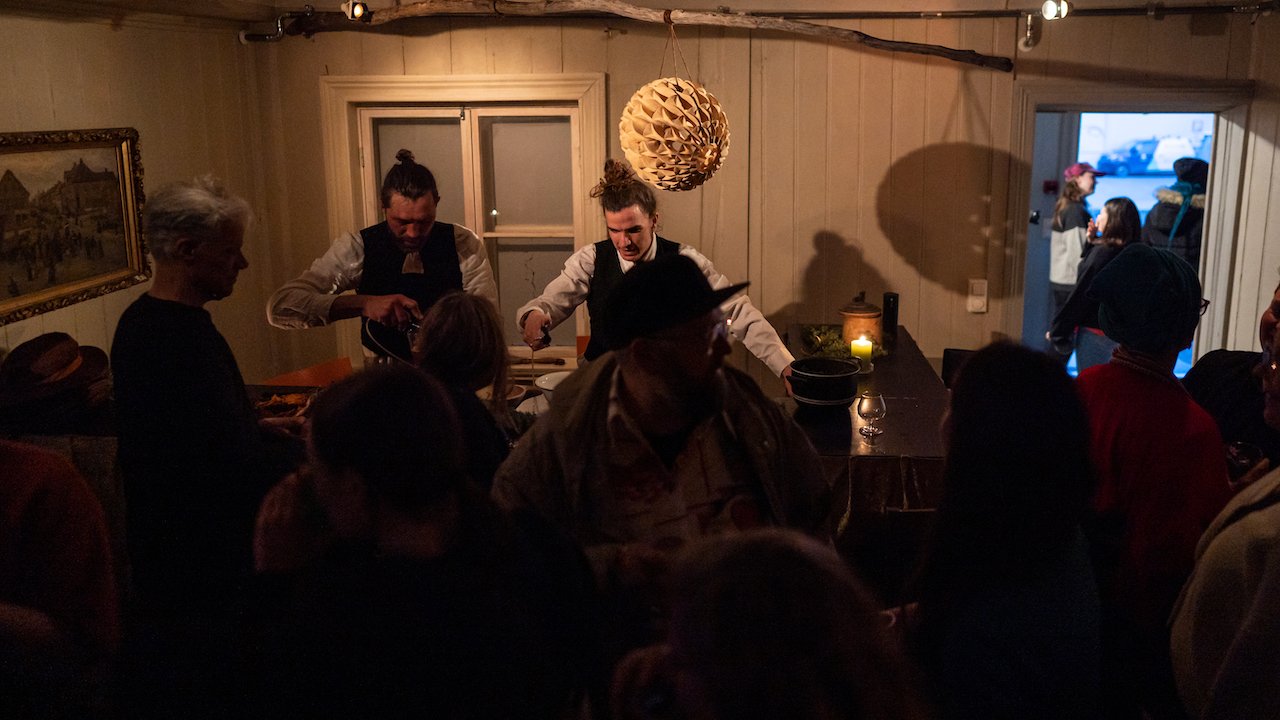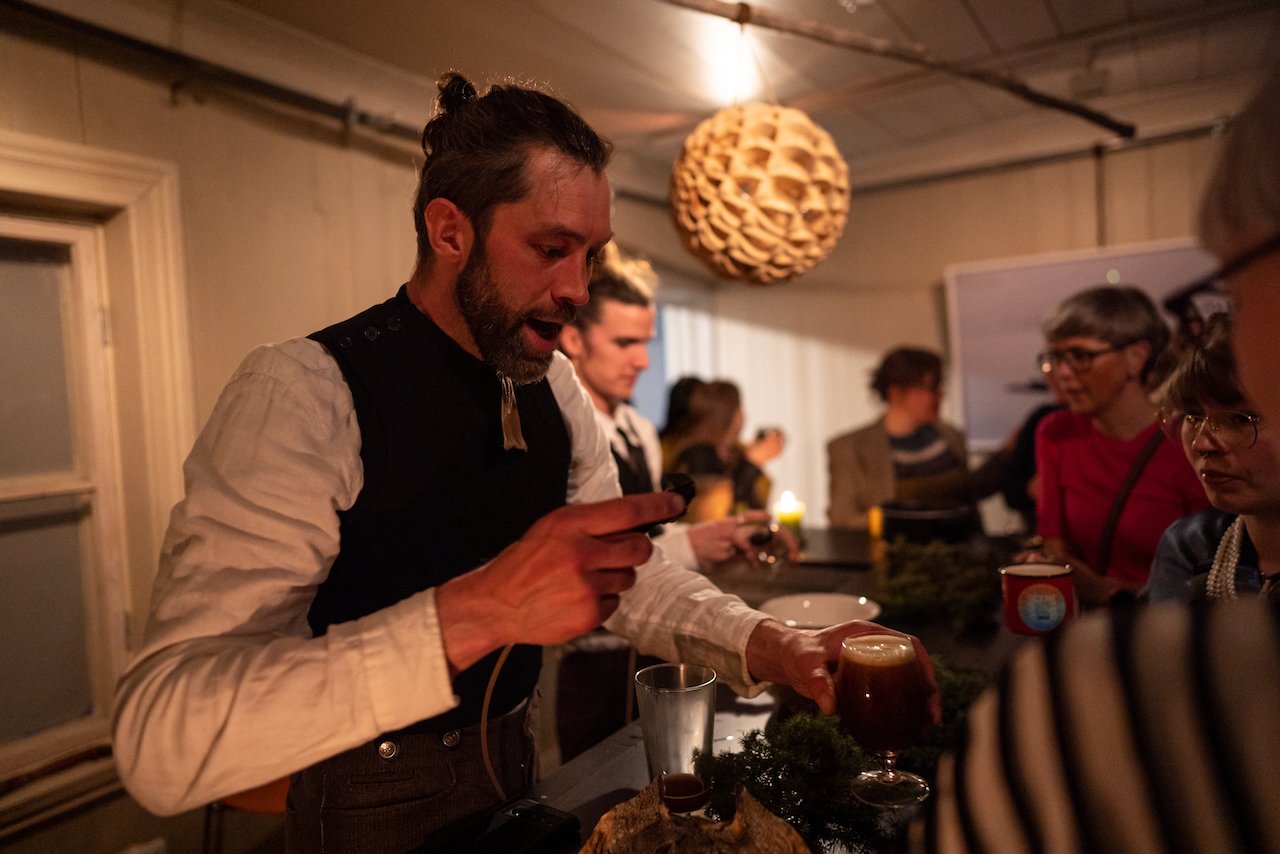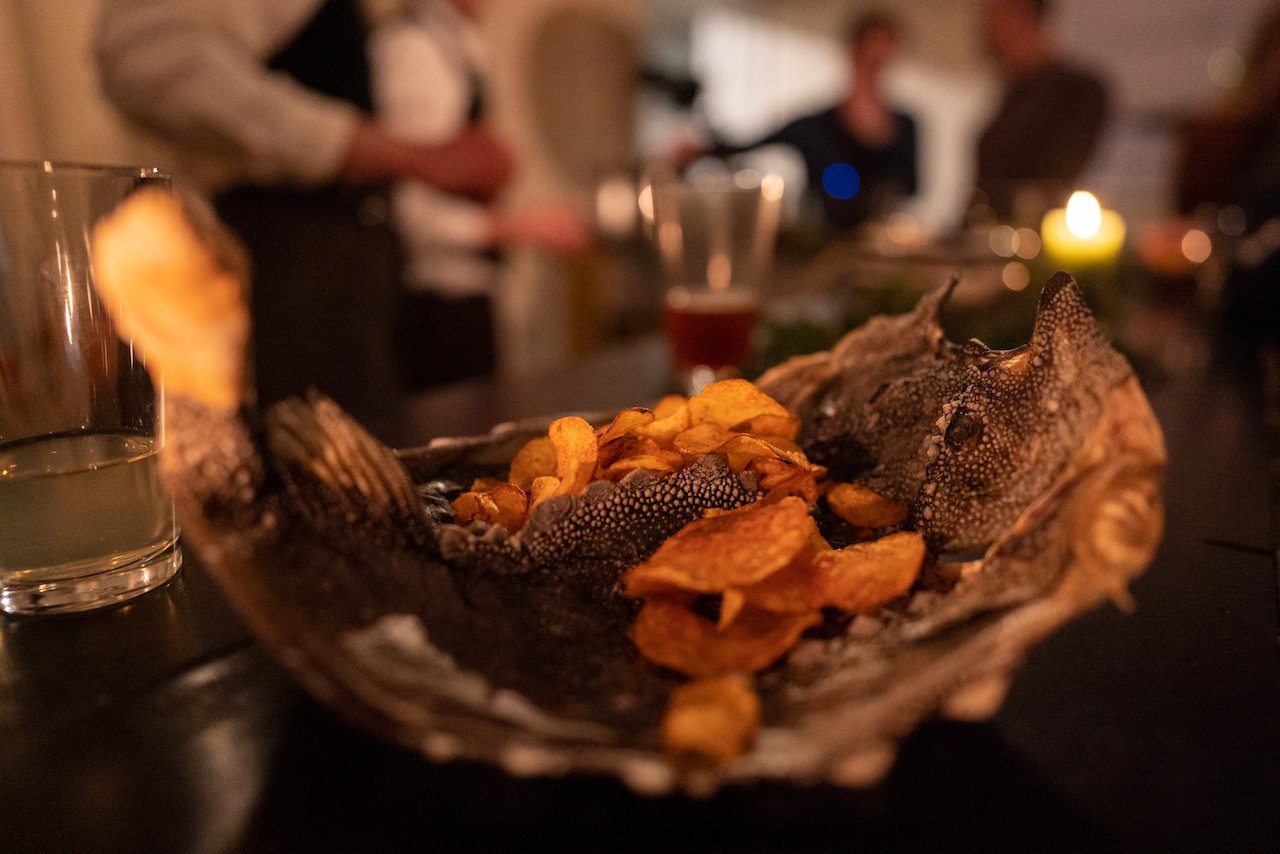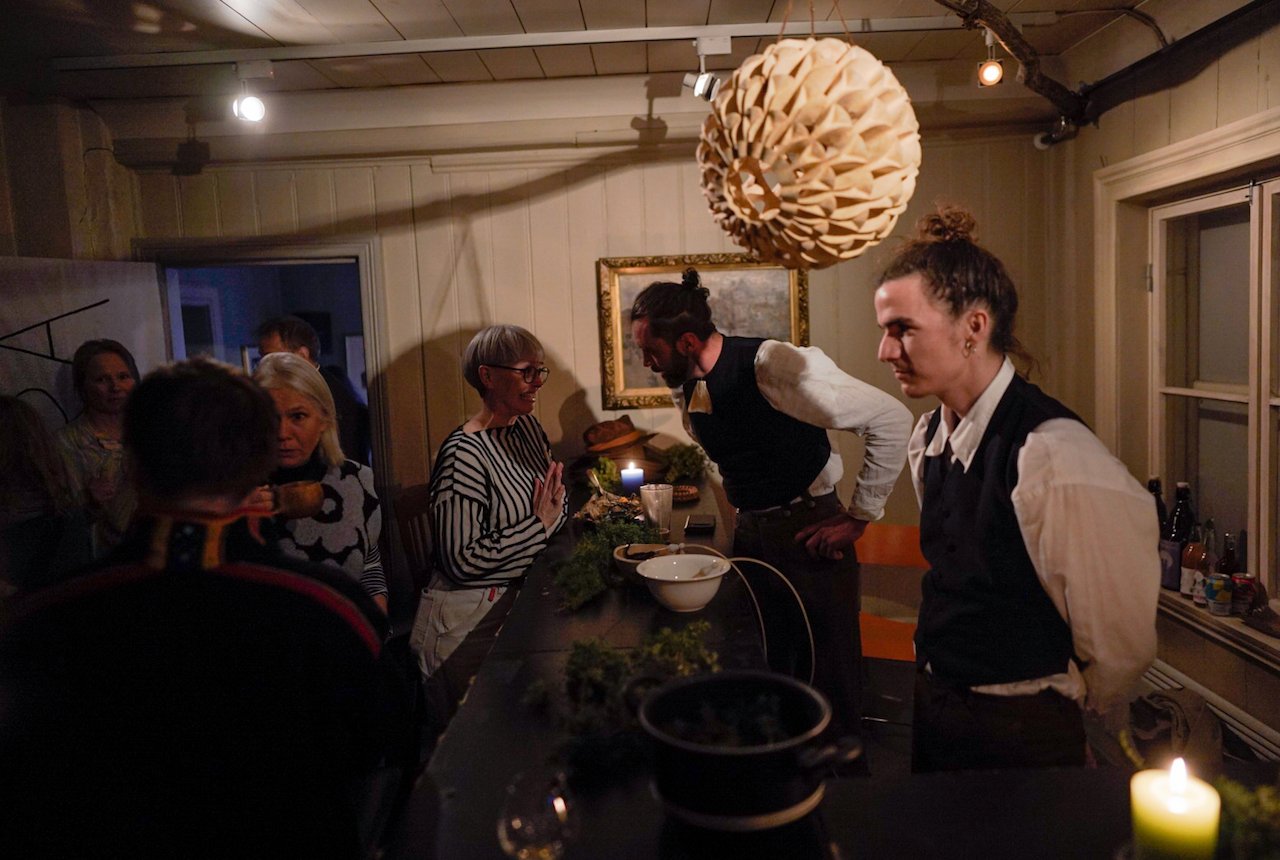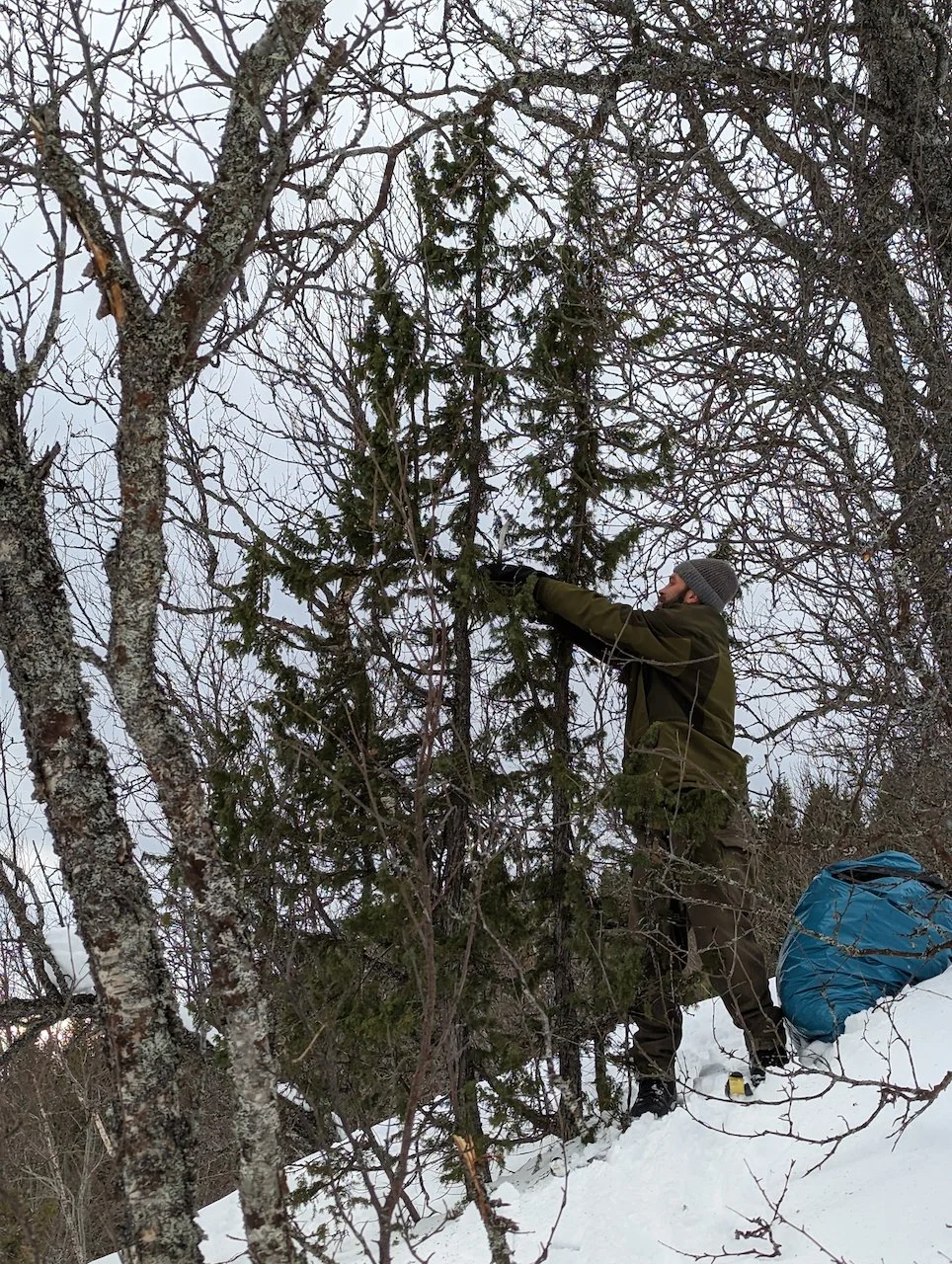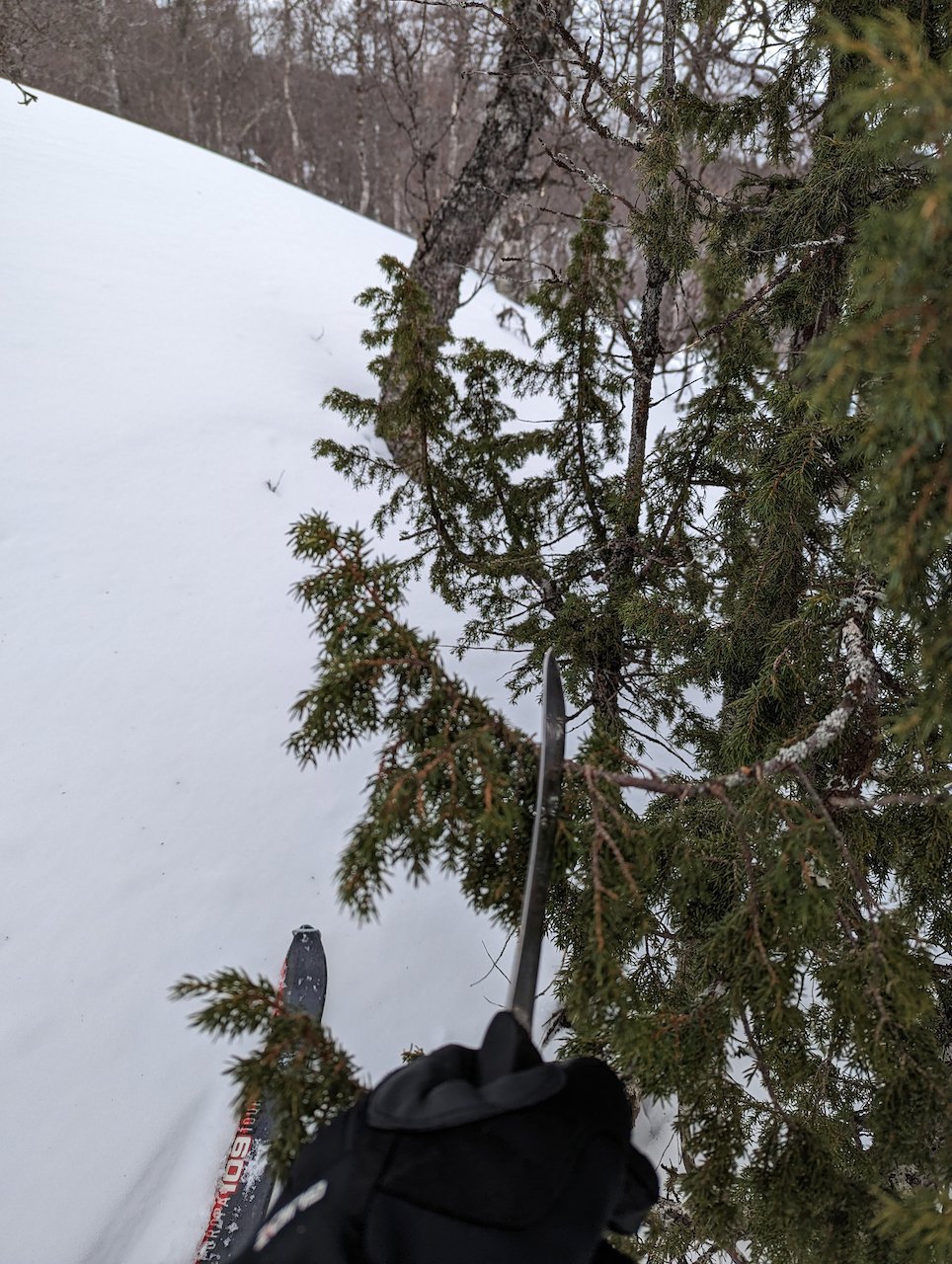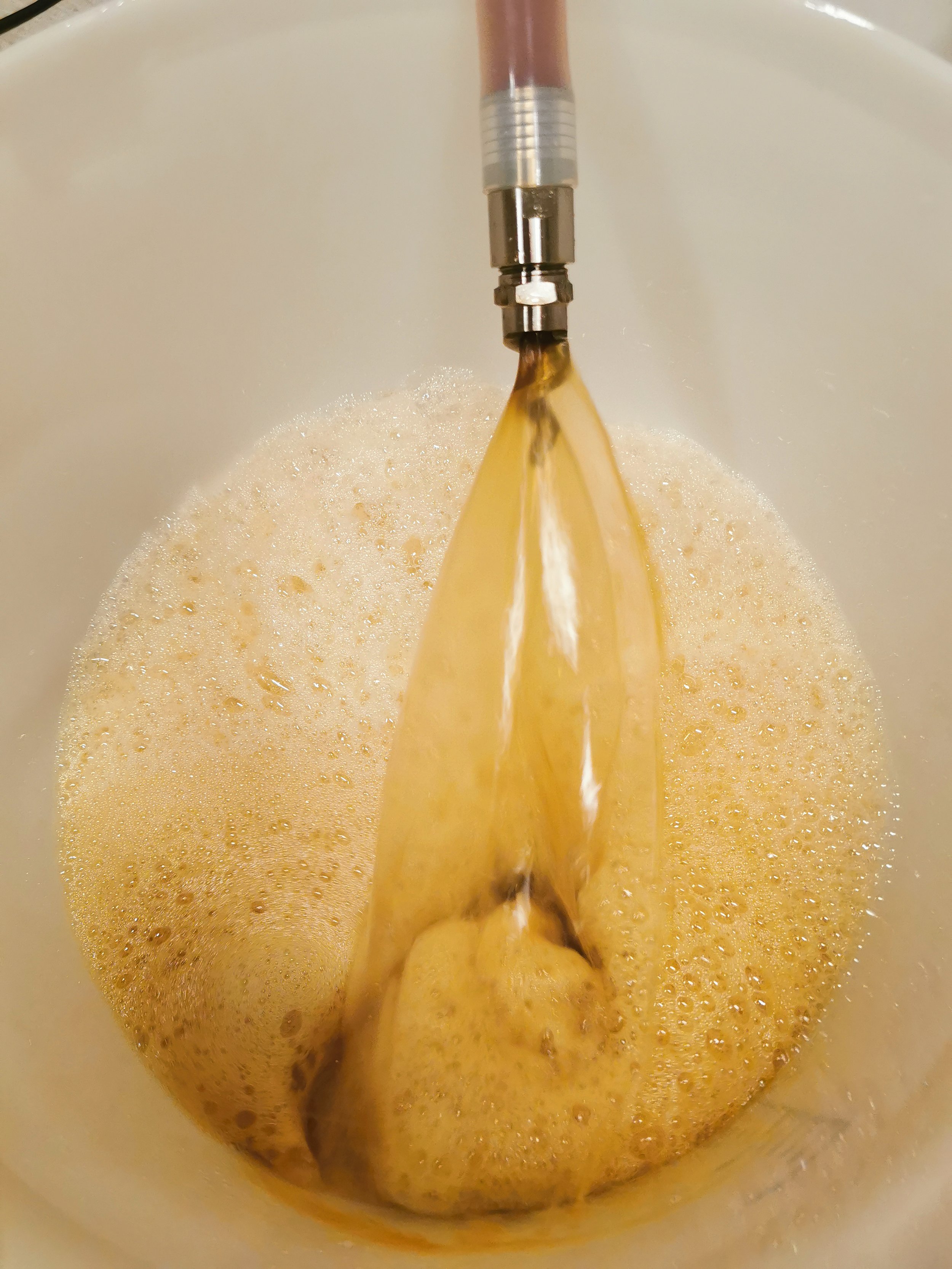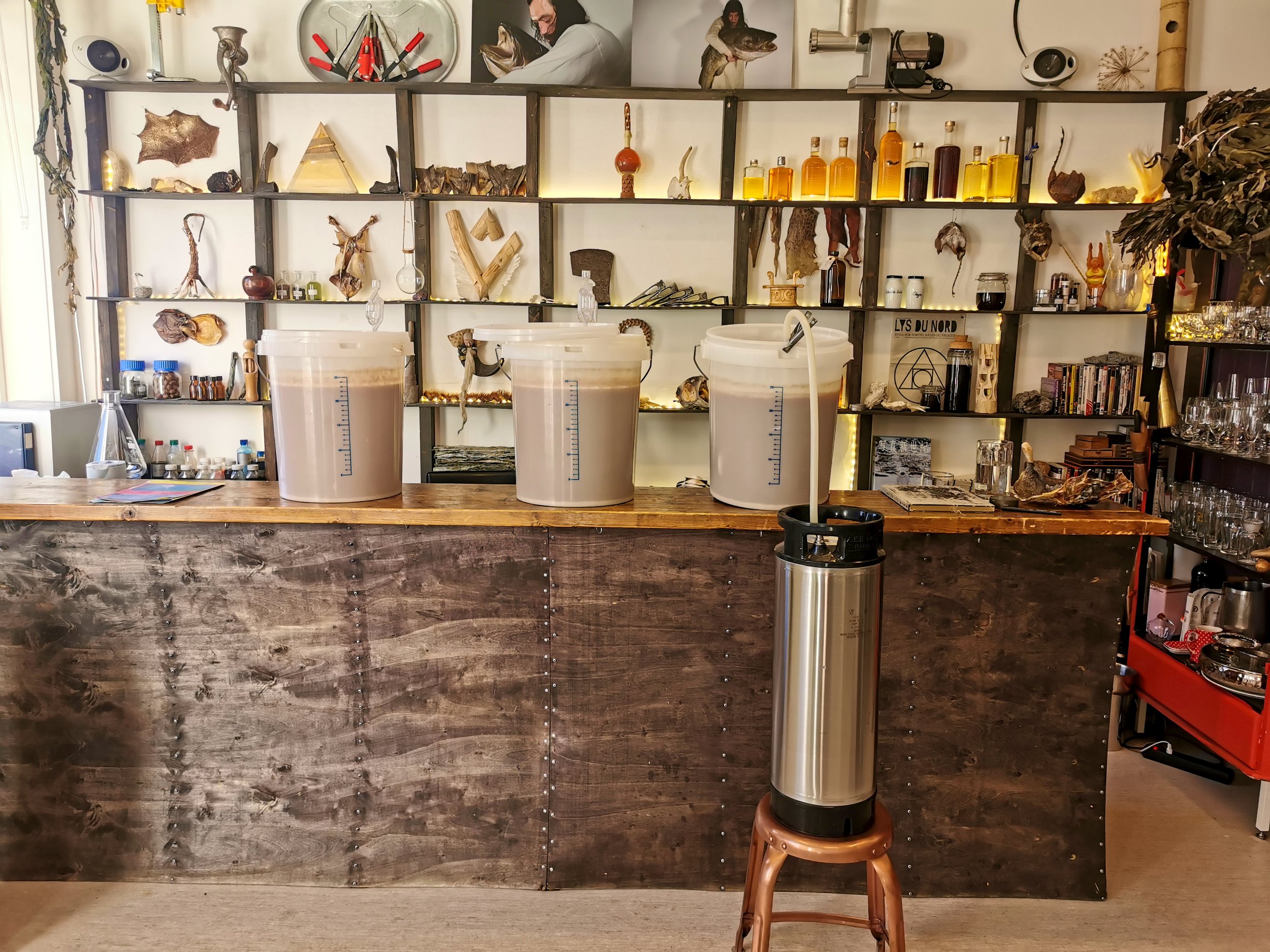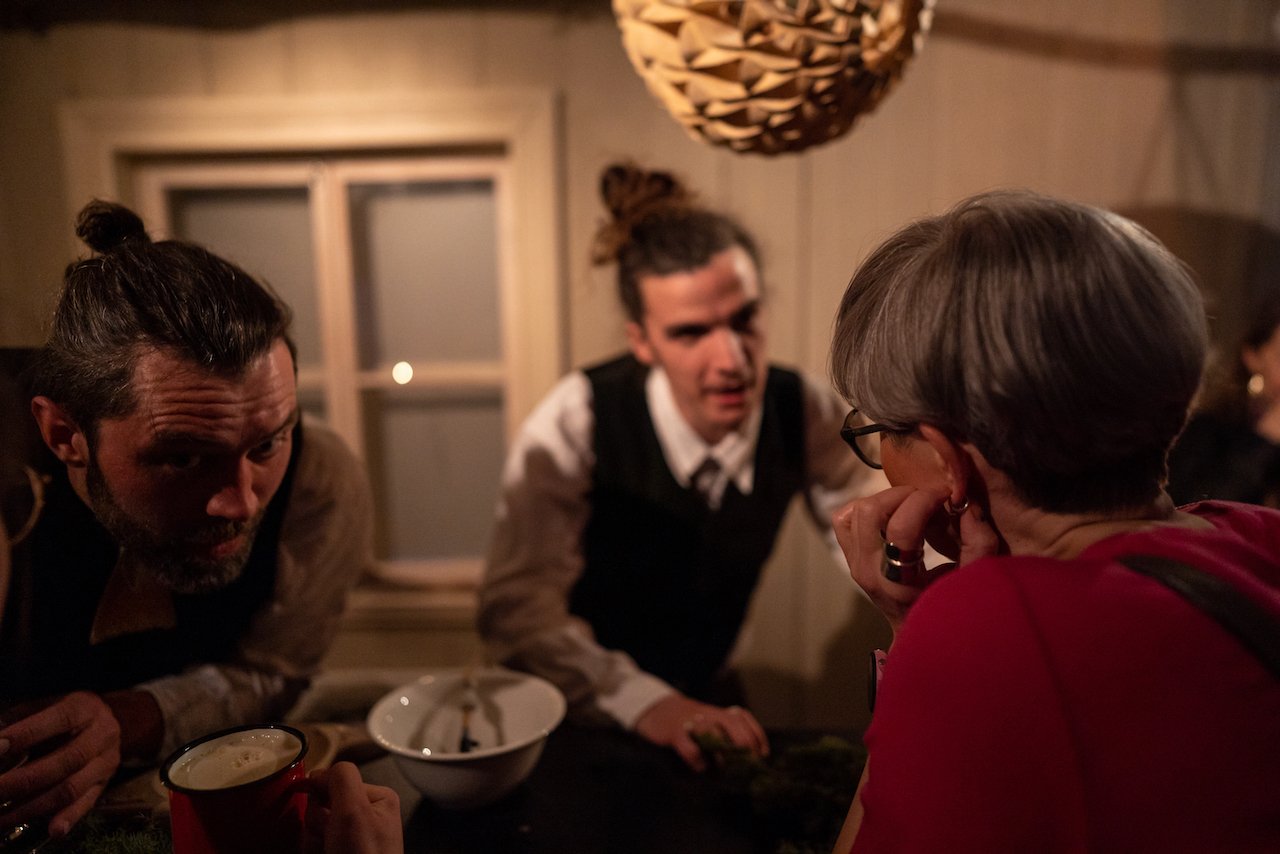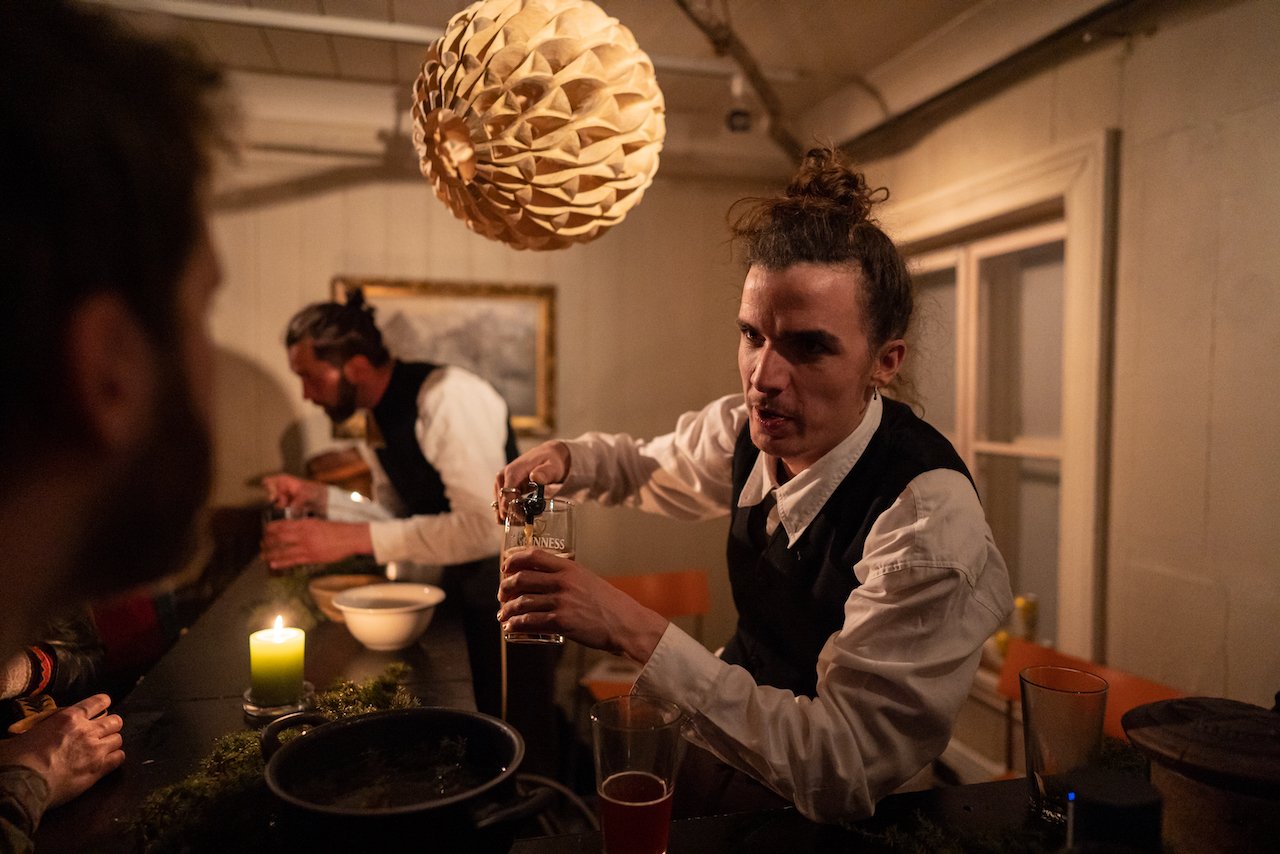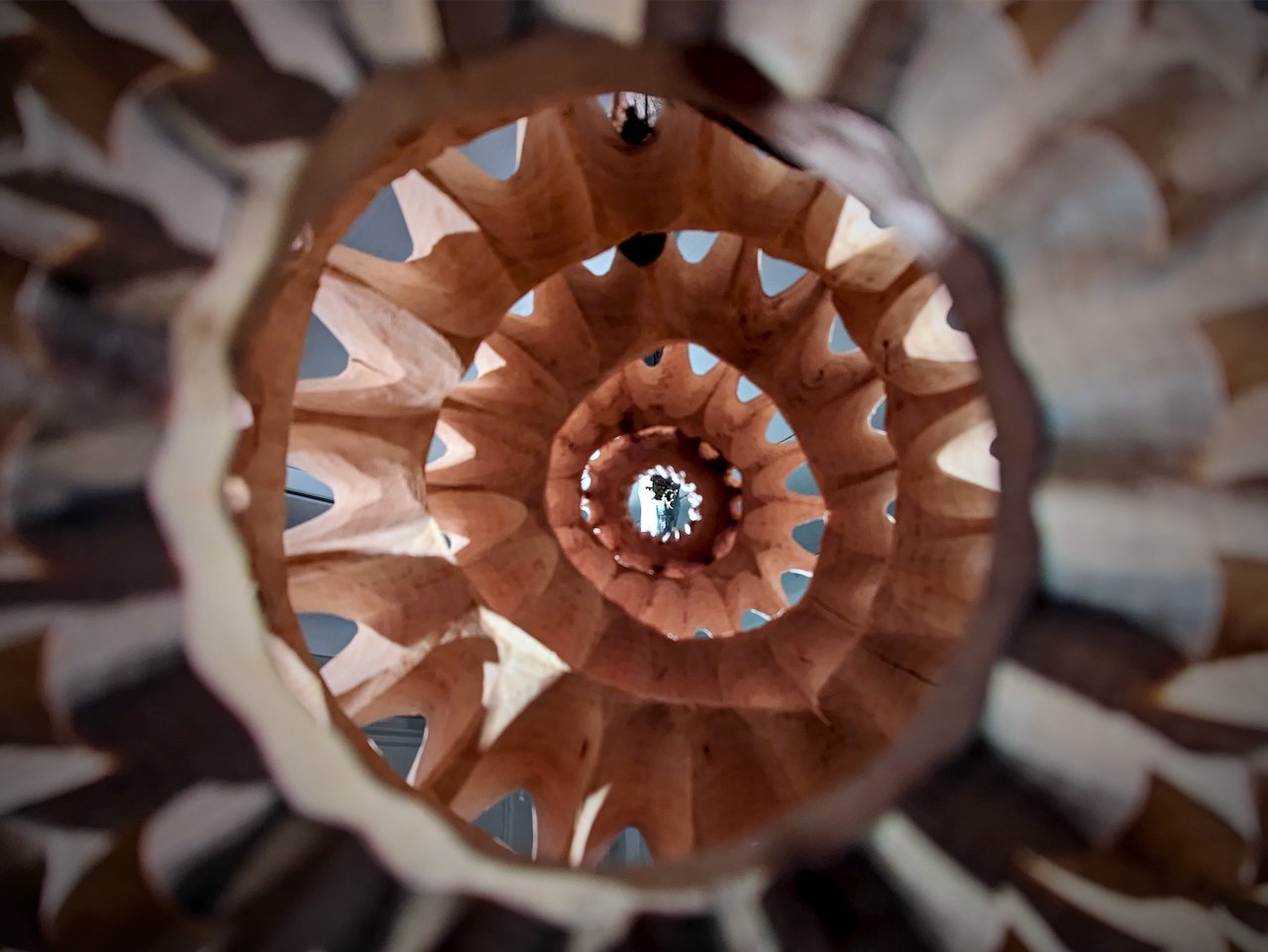KVEIKBAR at BLODKLUBB, 2023
In Norway, a carved wooden ring hanging out of the bar used to be the symbole of real beer and a decent establishment. This was Kveikøl, the only beer of Nordic heritage and the central element of a drinking culture very different from what we have today. “Alcohol in the blood“ was the theme and title of «BLODKLUBB» (Nr.5) during Vårscenefest (Tromsø Performing Art Festival) in 2023. As part of this I presented the first rendition of KVEIKBAR and its rituals together with artist assistant Niels Nielsen.
When you inherited the farm in old times, you were also handed over the family's Kveik-log or ring in a secred ceremony. It had been passed down through generations, going back to time immemorial and contained the magical Kveik that could transform malt into beer. The drink was considered sacred and was supposed to be strong and sweet with the taste of juniper and mountain herbs. Marriages were sealed with a bowl of Kveikøl and contracts only became legally valid through the toast. Our children used to be baptised in the brew and the dead was drunken safely over to the other side with large quantities of Kveikøl. The church preached that God's gift of grace to mankind was the fermented drink that put you in a state closer to himself.
Meeting eachother over a glass of tasty brew has always been important for people all over the world, and at KVEIKBAR we give you a forgotten drink that both tastes and works differently than you are used to. Stories, rituals and ceremonies will be central, and we expect feedback in the form of laughter, good conversations and not at least loud beer howls that indicate the quality of our brew. Perhaps even the king or the bishop will come visit to check that the beer is strong and sweet enough? In early times, you would be fined or even banished from the country if the law was not maintained.
Traditions change and expand, and we hereby invite all members of BLODKLUBB and the feast at KVEIKBAR to introduce art, craft and storytelling as a new viable currency.
Kveik ring, hanging on a stick out ot the bar used to be the symbole of true beer and a decent bar. From the Swedish bishop Olaus Magnus Historia de Gentibus Septentrionalibus (The history of the Nordic peoples), 1555
“BLODKLUBB is an annual happening at the Tromsø Performing Art Festival. This years theme was alcohol, and the bar concept by artist Trond Ansten was central to the edition. I had several stops at Ansten's Kveikbar/art project, which was decorated with a fabulous round Kveik ball (or a kind of yeast log) hanging from the ceiling (like a kind of disco ball) and dried fish skins were used for snacks. The crackingly handsome bartenders (among them, Ansten himself) enthusiastically told about the special self-brewed beer they served with fascinating anecdotes. Such as, for example, that Norway had long required beer brewing for religious festivities, with strict requirements for both quantity and strength.
How nice would it not have been to drink like a fish from Ansten's strong, sweet Kveikøl? Alcohol is often a social lubricant and would probably have helped me loosen up, to become more of a participant and less of an observer - but then there was this text. I was a little nervous, and didn't know if this was going to be an internal evening of drunkenness and halloi or a moralizing lecture about the negative aspects of alcohol. My concern was unfounded, as the BLODKLUBB was neither. The arrangement was tight enough that it made sense, but loose enough that you didn't really know who was the organizer and who was the audience. The distinction is not really relevant and I think we all felt like participants rather than spectators. One event transitioned into another, seamlessly and effortlessly, small talk, speeches, joik and song.
Perhaps it is precisely because you cannot put your finger on where the art ends and life begins, between the coincidences and the dramaturgy, that BLODKLUBB works so damn well. Through an experimental, playful and curious approach to performing arts as a social arena, they create an effective platform and a safe space. And from here they are able to deal with the nuances of complex issues without being admonishing or based on clearly preconceived positions.”
Espen Johansen / HAKAPIK Nettmagasin


